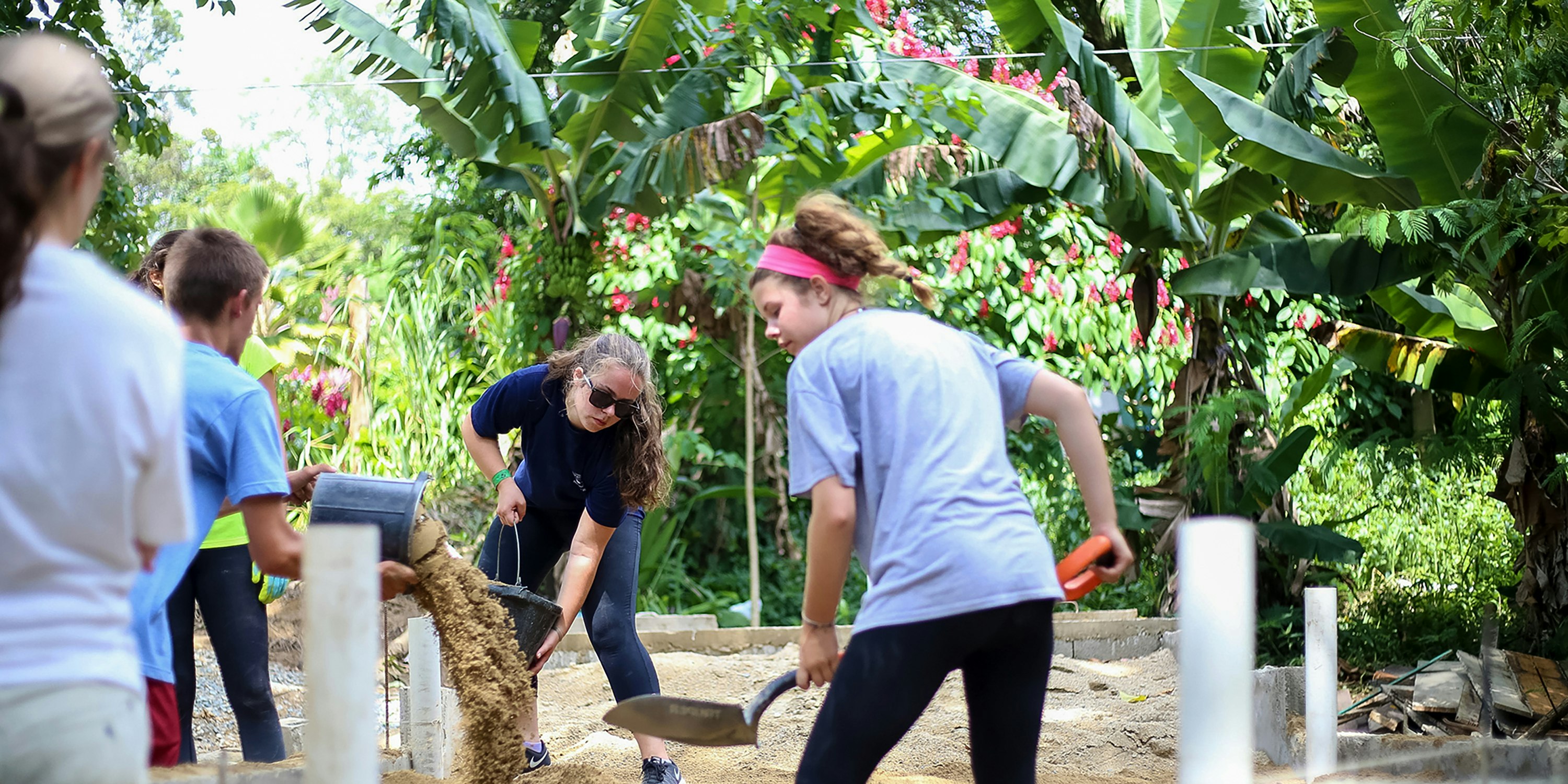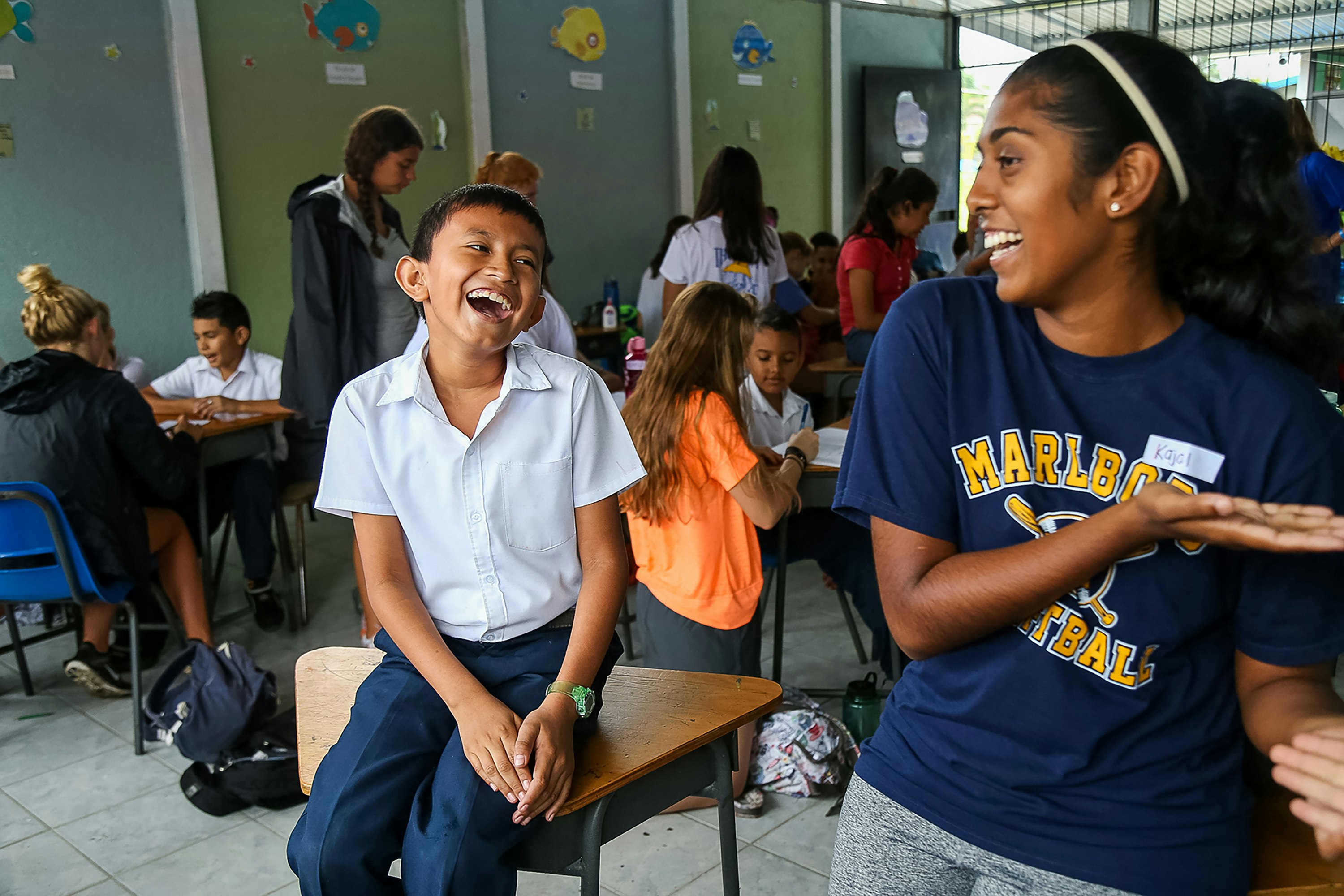2025 Travel Dates Coming Soon
| Find out when 2025 dates are available |
Experience daily life in the heart of the Cordillera Central mountain range, also known as the Dominican Alps for its cool weather, scenic vistas, and high altitude. Many small villages here lack basic necessities and infrastructure such as running water and electricity. Contribute to Rustic’s ongoing efforts to bring water to these communities by helping with the construction of an aqueduct to serve local homes and farms. After service, enjoy a weekend of sun, relaxing on one of the Dominican Republic’s incredible beaches. Take part in activities like hiking the Baiguate Waterfall or visiting the town of Jarabacoa.
Similar Programs Available Now
-
-
Country:
-
-
-
Department:
- Student Travel
-
-
-
Duration:
- 9 Days
-
-
-
Max. Students:
- 18
-
-
-
Ages:
- 13-17
-
-
-
Cost:
- $2,395 plus Airfare
-
-
-
Service Hours:
- 20
-
-
-
At-A-Glance:
-
Accomodation Amenities
Adventure/Physicality
Educational Activities
On-Program Travel
-
Packing the right gear (and the right amounts) is the first step to an incredible travel experience. Follow these tips to pack like a pro:
Travel light. Pack only the essentials. You’ll need less than you think!
Consider no checked bag. We strongly recommend that you consider packing only a carry-on size bag. This prevents your luggage getting lost or separated from you, keeps your bag manageable, and helps you be more mobile on your travel day.
Bring the right clothes. Pack clothes that are culturally appropriate for your destination and acceptable for service projects. This means bringing long shorts (think Bermuda and basketball shorts), t-shirts with sleeves to cover shoulders, and appropriate footwear.
Leave your valuables behind. While traveling, it’s easier for things to get lost, stolen, or damaged. Keep any prized possessions safe at home.
Check with TSA. Make sure your luggage complies with TSA regulations, especially your carry-on. Useful tip: Pack an empty water bottle and fill it up after security.
Extra paperwork? If you need additional forms filled out to get credit for your service hours, no problem! Bring these forms with you so they can be completed in-country.
A school backpack is ideal as it will be used for daily activities and outings.
- Passport
- Two photocopies of passport
- Wallet/money
- Book
- Journal and Pens
- Phone
- Camera
- Chargers
- Ear buds
- Change of clothes
- Water bottle
- Medication
- Additional community service forms
- Visa documentation (if applicable)
- Consent to Travel Letter (for students under 19, recommended by the US State Dept but not required)
- Rustic Pathways emergency contacts
A 40-50 liter duffel bag or backpack is ideal.
Clothing
- Socks (8)
- Underwear (8)
- Work pants (2 – 4)
- Jeans (1)
- Long shorts (3-4)
- Long skirt
- T-shirts (6-8)
- Long sleeved shirt (1)
- Fleece/hoodie
- Pajamas
- Swimsuit
- Quick dry towel
- Beach towel/sarong
- Rain jacket
- Light jacket
- Strappy sandals (like Tevas or Chacos)
- Sneakers (2)
- Work gloves
- Sunglasses
- Hat (for sun)
- Headlamp
- Portable games (Bananagrams, cards, etc.)
Toiletries
Travel size bottles in Ziploc bags
- Shampoo
- Conditioner
- Body wash
- Face wash
- Toothbrush & toothpaste
- Oxybenzone-free sunscreen (reef-safe)
- Bug spray
- Feminine hygiene products
- Hand sanitizer
- Shorts should be knee length—think Bermuda or basketball shorts—to be respectful to the local culture and traditions.





